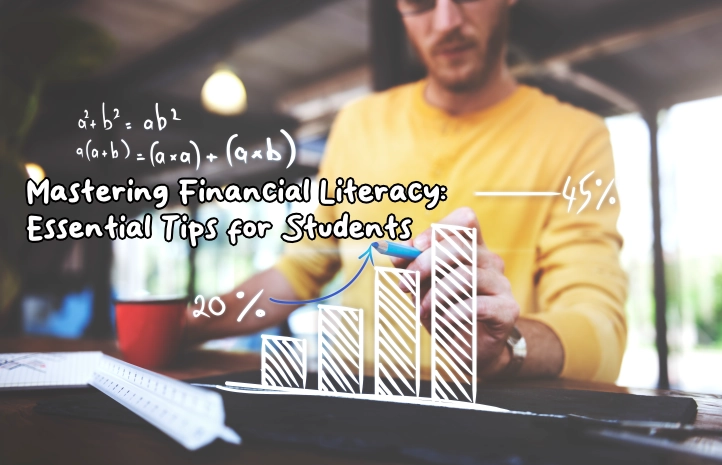Mastering Financial Literacy: Essential Tips for Students
Financial literacy is a crucial skill that empowers individuals to make informed decisions about their finances, both now and in the future. For students, developing financial literacy skills is particularly important as they navigate the challenges of managing expenses, budgeting effectively, and planning for life after graduation. In this blog post, we’ll explore practical tips and resources to help students master financial literacy and achieve financial well-being.
Understanding Budgeting:
One of the fundamental aspects of financial literacy is budgeting. Encouraging students to create a budget that outlines their income and expenses, including tuition fees, housing costs, transportation, and other necessities. Suggest using budgeting tools or apps to track expenses and identify areas where they can cut back or save money.
Managing Student Loans:
For many students, taking out student loans is a necessary part of financing their education. However, it’s essential to understand the terms of the loans, including interest rates, repayment options, and potential consequences of default. Encouraging students to explore loan repayment calculators and to consider options such as income-driven repayment plans or loan consolidation.
Saving and Investing:
Teaching students the importance of saving money regularly and setting aside funds for emergencies or future goals. Encourage them to open a savings account and to automate their savings by setting up recurring transfers from their checking account. Additionally, introduce the concept of investing and the potential benefits of starting early, even with small amounts of money.
Financial Planning for the Future:
Helping students understand the importance of setting financial goals and creating a plan to achieve them. Whether it’s saving for a down payment on a house, starting a retirement fund, or traveling abroad, encourage students to prioritize their goals and develop actionable steps to reach them. Provide resources on topics such as retirement planning, insurance options, and estate planning.
Utilizing Resources and Support:
Reminding students that they don’t have to navigate the complexities of financial literacy alone. Encourage them to take advantage of resources available on campus, such as financial aid offices, student support services, and workshops or seminars on financial literacy. Additionally, recommend reputable websites, books, and podcasts that offer valuable insights and tips for managing money effectively.
Conclusion:
By mastering financial literacy skills, students can set themselves up for success both during their academic journey and beyond. By understanding budgeting, managing student loans, saving and investing wisely, planning for the future, and utilizing available resources and support, students can take control of their finances and build a solid foundation for financial well-being. Empower your students to take charge of their financial futures and thrive in all aspects of their lives.
